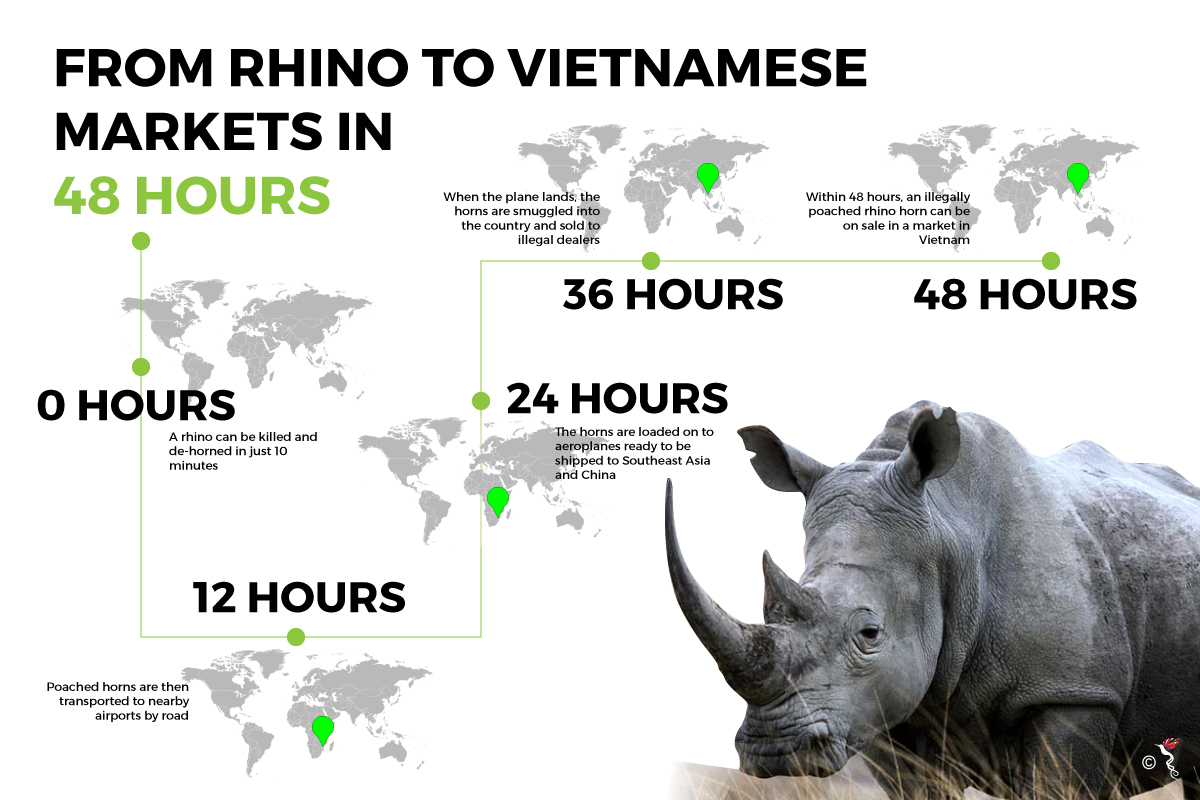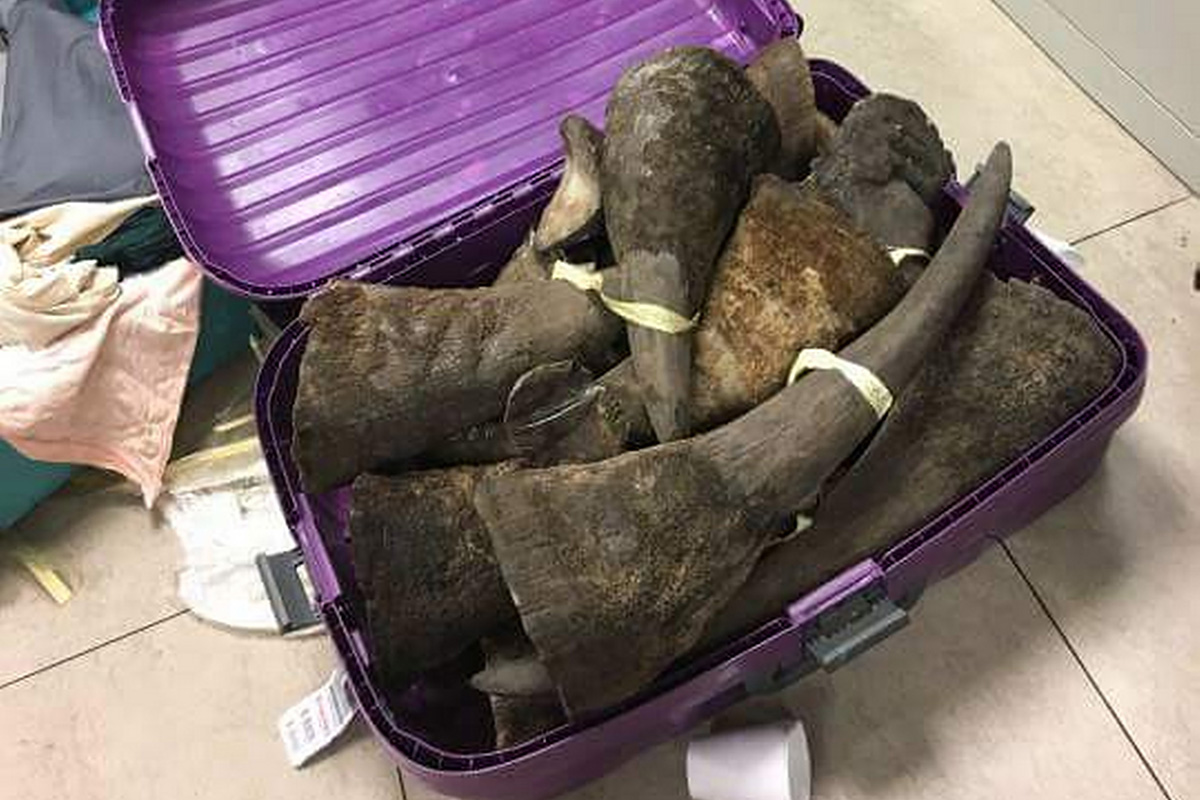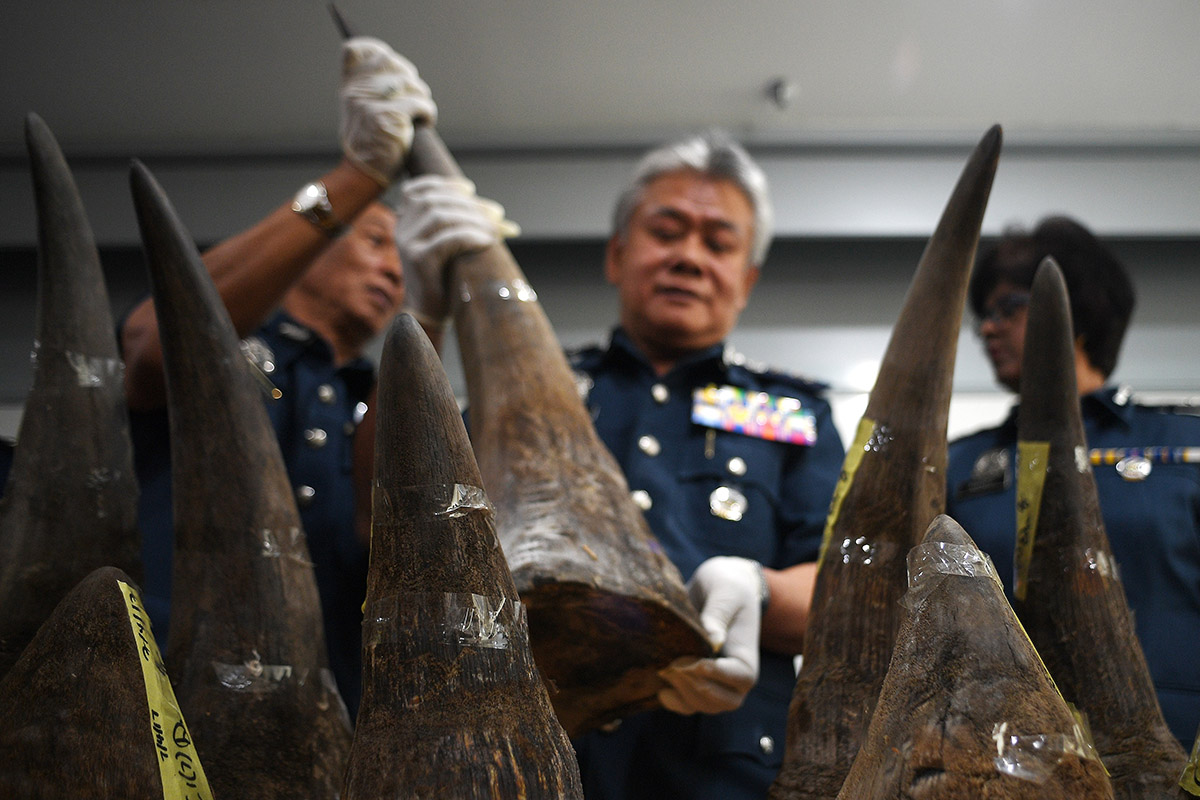The Royal Thai customs have seized 12.5 kilograms of rhino horn from South Africa in December, leading to the arrest of a key figure in Southeast Asia’s illicit wildlife trade.
With the help of Elephant Action League (EAL), a non-profit organization based in US that investigates wildlife crime, Royal Thai authorities managed to arrest wildlife traffickers from the Bach Family Syndicate in Thailand.
Through the seizure last month, Royal Thai Customs arrested a Chinese mule and a Thai national. Following the arrest, EAL’s intelligence team identified a connection between this shipment to the Bach Family trafficking network. The co-operation between EAL and the Royal Thai Police resulted in the arrest of Bach Van Hoa.
According to a press statement, “the Bach Family is a major trafficking syndicate led by two brothers and with operations in Thailand, Laos and Vietnam.”
EAL’s director, Andrea Crosta, indicated in the press statement that he “believes that this specific ring of traffickers that we took down is behind the smuggling of at least 56.5 kg of rhino horn from South Africa in the past four months.”
The statement also indicated that the “total value of this raw rhino horn on the wholesale black market in China is at least USD 2 million (before being processed, carved, or ground).”
This was the second high-profile arrest in Thailand in less than a week. On 11 December 2017, the wanted kingpin Kampanart Chaiyamart, belonging to one of the most significant wildlife syndicates in South East Asia, was arrested not far from Bangkok.
The value of rhino horn in Southeast Asian culture
Rhino horn is arguably one of the most prized possessions in Asian culture, especially for medicinal purposes. The horn is composed of matted hair and fibrous keratin, the same substance found in fingernails, human hair and lizard scales.
It has been used for centuries in Chinese medicine, where it is usually ground into powder and often mixed with hot water to treat a variety of maladies including rheumatism, gout, and fever amongst others. In recent years an upsurge in demand in the Southeast Asian has been linked to a rumor that rhino horn had miraculously cured a Vietnamese politician who was suffering from terminal liver cancer.

The 48-hour timeline of poached rhino horn from South Africa to Southeast Asia. Source: World of Animals.
Despite having only one fifteenth of China's population, Vietnam is now believed to be an even larger market for rhino horn compared to China. Rhino horn, once seen as a treatment only for royalty, is being swallowed by a small segment of the Vietnamese population who can afford prices of about 65,000 dollars a kilogram, conservation groups say.
Vietnam's surging demand is currently threatening to wipe out the world's remaining rhinoceros populations, which recovered from the brink of extinction after the 1970s thanks to conservation campaigns. Although China’s history with rhino horn obsession dates further, international wildlife experts now say Vietnam's recent craving intensity, is putting unprecedented pressure on the world's estimated 20,000 or lesser remaining animals, mainly in South Africa.
Other cases in Southeast Asia
Earlier in 2017, Malaysia had seized 18 rhino horns, weighing 51.45 kg that had arrived at Kuala Lumpur International Airport (KLIA) on 7th April, on a flight from Mozambique and transited in Doha.
Acting on intelligence, Customs officers conducted a search at the airport’s Free Trade Zone’s cargo warehouse and found the horns in a small crate within a cardboard carton that was falsely declared as artwork.
The case is a violation under at least two laws in Malaysia - the International Trade in Endangered Species Act (2008), which is the country’s implementing legislation under the Convention on International Trade in Endangered Wild Fauna and Flora (CITES). Rhino horn trafficking is also a violation of Malaysia’s Customs Act (Prohibition of Imports) 2012.

In this photo taken on March 14, 2017 shows smuggled rhino horns in a suitcase after they were seized at a customs office in Hanoi, Vietnam. (AFP Photo/STR)
In August, a Vietnamese man was detained by the authorities at Singapore’s Changi Airport after eight pieces of rhino horn were seized from his luggage.
According to Andrea, “The work is far from over as EAL and our partners will be working to fully disrupt these trafficking networks for many months – maybe even years.”
The report continued to state that “these arrests and operations should have a ripple effect back to Africa and Indonesia, from where these wildlife criminal networks get their products, including rhino horn, ivory, pangolins and live animals like orangutans.”
